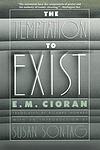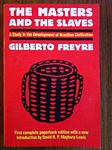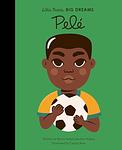The Greatest Romanian, Brazilian "Nonfiction" Books Since 1900
Click to learn how this list is calculated.
This list represents a comprehensive and trusted collection of the greatest books. Developed through a specialized algorithm, it brings together 300 'best of' book lists to form a definitive guide to the world's most acclaimed books. For those interested in how these books are chosen, additional details can be found on the rankings page.
Genres
Countries
Date Range
Reading Statistics
Click the button below to see how many of these books you've read!
Download
If you're interested in downloading this list as a CSV file for use in a spreadsheet application, you can easily do so by clicking the button below. Please note that to ensure a manageable file size and faster download, the CSV will include details for only the first 500 books.
Download-
1. Rebellion In The Backlands by Euclides da Cunha
This book offers a detailed and vivid account of the War of Canudos, a significant peasant revolt that took place in the late 19th century in the Brazilian backlands. Through a blend of historical documentation and narrative, the text explores the socio-political conditions that led to the uprising, the charismatic leadership of Antônio Conselheiro, and the brutal suppression of the rebellion by the Brazilian government. The author delves into the geography, culture, and lives of the backland inhabitants, providing a deep analysis of the conflict as a reflection of the broader struggles within Brazilian society. This work is not only a historical account but also a profound commentary on the themes of civilization versus barbarism, social injustice, and the complexities of national identity.
-
2. On the Heights of Despair by Emil Cioran
"On the Heights of Despair" is a philosophical exploration of the human condition, particularly focusing on themes such as existentialism, despair, and nihilism. The author delves into the idea of life as suffering and the inevitability of death, offering a bleak yet thought-provoking perspective on existence. The work is a profound contemplation of life's absurdity, loneliness, and the struggle to find meaning, presenting an introspective journey into the depths of despair and the heights of existential thought.
-
3. The Temptation To Exist by Emil Cioran
"The Temptation to Exist" is a philosophical work that explores the human condition and the inherent struggles of existence. The author delves into themes of nihilism, despair, and the search for meaning in a world filled with suffering. Through a series of thought-provoking essays, Cioran challenges traditional beliefs, questions the nature of reality, and reflects on the complexities of human existence, ultimately offering a bleak yet profound perspective on the human experience.
-
4. Images And Symbols by Mircea Eliade
The book is a profound exploration of the symbolism inherent in religious images, myths, and rituals. It delves into the various ways in which symbols function within different cultures, examining their role in expressing the metaphysical dimension of reality. The author argues that symbols are integral to human experience, allowing individuals to transcend the ordinary world and connect with a deeper, universal level of consciousness. Through an analysis of diverse religious traditions and artistic expressions, the work reveals how symbols serve as a bridge between the sacred and the profane, offering insights into the human quest for meaning and the spiritual dimension of life.
-
5. Child Of The Dark by Carolina Maria De Jesus
The book is a powerful and harrowing diary that provides an unflinching look at the brutal realities of life in the favelas of São Paulo, Brazil, through the eyes of a struggling single mother. The author documents her daily fight for survival and that of her children, as they contend with hunger, poverty, and the constant threat of violence. Her poignant observations and raw emotional honesty offer a deeply personal insight into the systemic social injustices and the resilience of the human spirit in the face of overwhelming adversity.
-
6. Os Nacionalismos Africanos by Mario de Andrade
"Os Nacionalismos Africanos" explores the rise of African nationalism during the mid-20th century, delving into the various factors that fueled the movement across the continent. The book examines the impact of colonialism, the emergence of Pan-Africanism, and the struggles for independence experienced by African nations. Through a meticulous analysis of historical events and political ideologies, the author provides a comprehensive understanding of the complex dynamics that shaped African nationalism and its enduring legacy in the post-colonial era.
-
7. The Masters and the Slaves by Gilberto Freyre
This book is a sociological and anthropological study of 19th century Brazil, focusing on the relationship between the Portuguese colonists and the African slaves. It delves into the racial and cultural synthesis that occurred, resulting in the unique Brazilian identity. The book is known for its controversial assertion that the Portuguese colonizers were more humane and less racist than their North American counterparts, leading to a more harmonious racial integration in Brazil.
-
8. For My Legionaries by Corneliu Zelea Codreanu
The book is a manifesto and autobiographical account that details the creation and political ideology of the Iron Guard, a nationalist and anti-Semitic organization in Romania during the early 20th century. It combines personal experiences with ideological exposition, advocating for a nationalist revival, anti-communist and anti-Semitic policies, and a radical overhaul of Romanian society based on Christian values and extreme nationalism. The narrative also reflects the author's leadership role and his vision for a unified, spiritually cleansed Romania, emphasizing loyalty, discipline, and the sacrifice necessary to combat perceived corruption and foreign influence.
-
9. Journal, 1935 44 by Mihail Sebastian
"Journal, 1935-44" is a captivating collection of diary entries written by an insightful and introspective individual named Mihail Sebastian. Spanning almost a decade, the journal provides a unique glimpse into the author's personal thoughts, experiences, and observations during a tumultuous period in history. Through his poignant reflections, Sebastian explores themes of identity, love, politics, and the human condition, offering readers a profound and thought-provoking journey through his inner world.
-
10. Pedagogy Of The Oppressed by Paulo Freire
This book is a seminal work in the field of critical pedagogy that explores the complex relationship between the oppressor and the oppressed in educational contexts. The author argues that traditional pedagogical methods perpetuate existing hierarchies and suggests a new approach called "problem-posing education," which emphasizes dialogue and critical thinking to empower learners to question and challenge oppressive systems. The text is both a critique of the way education is often used as a tool of domination and a guide for how it can instead be transformed into a practice of freedom, helping individuals to achieve self-realization and societal change.
-
11. My Life And The Beautiful Game by Pele
The book is an autobiography by one of the greatest soccer players of all time, who shares his journey from the streets of Brazil to becoming a global sports icon. The narrative delves into his profound love for soccer, detailing his career highlights, personal life, and the challenges he faced along the way. It also explores his role in popularizing soccer across continents and his enduring impact on the sport, providing insights into his philosophy both on and off the pitch. The autobiography is not only a reflection on his illustrious career but also an inspirational story of dedication, passion, and the transformative power of sports.
-
12. Pele: The Autobiography by Pele
In this autobiography, the legendary Brazilian footballer recounts his journey from a young boy with a passion for the game to becoming one of the most iconic figures in the sport's history. He shares insights into his upbringing, the challenges he faced, and the triumphs he experienced throughout his illustrious career. The book delves into his record-breaking achievements, including three World Cup victories, and his role in popularizing football across the globe. It also offers a personal look at his life off the pitch, including his contributions to various social causes and the legacy he hopes to leave behind for future generations of athletes.
Reading Statistics
Click the button below to see how many of these books you've read!
Download
If you're interested in downloading this list as a CSV file for use in a spreadsheet application, you can easily do so by clicking the button below. Please note that to ensure a manageable file size and faster download, the CSV will include details for only the first 500 books.
Download








